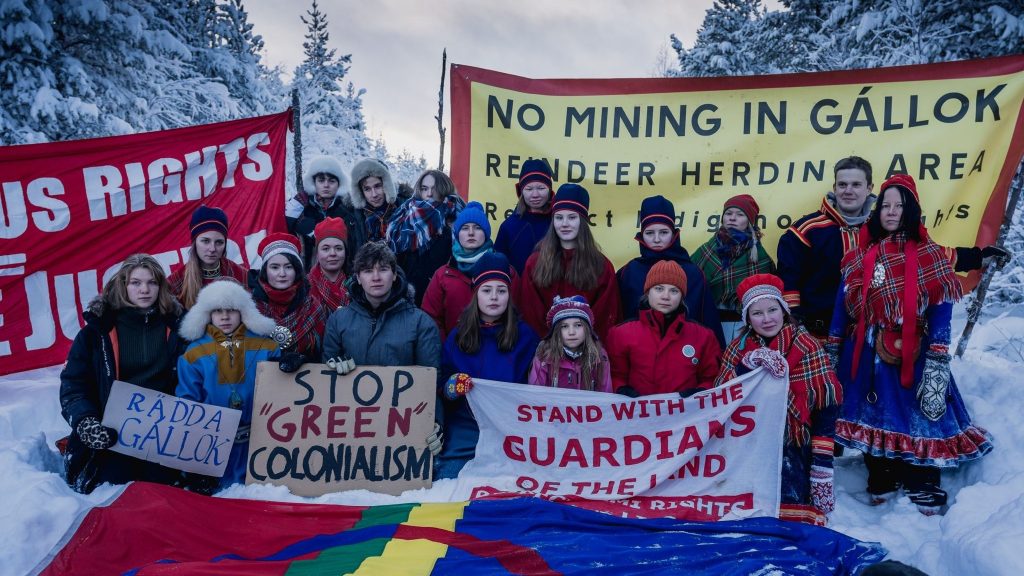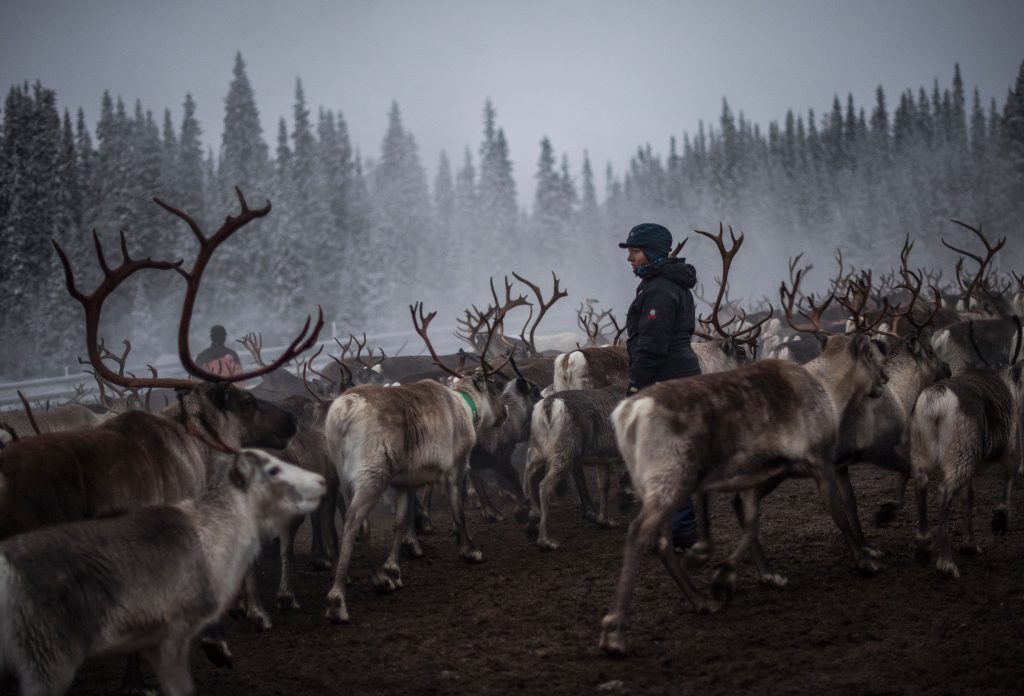UN experts call on Sweden to halt mining project on Indigenous Sami land

Two United Nations human rights experts urged the Swedish government on Thursday not to issue a license for an iron ore mine in Lapland, home to the Indigenous Sami people.
They argue that the Gállok site, located 45 kilometres outside the town of Jokkmokk in the county of Norrbotten in Swedish Sápmi, will produce a lot of pollution and toxic waste, and will endanger the protected ecosystem, including reindeer migration.
An open-pit mine will generate large amounts of dust containing heavy metals, and the disposal of toxic waste in tailing ponds will impact the environment and water sources, they said in a statement.
The independent experts, Guatemalan José Francisco Cali Tzay and Canadian David R. Boyd, are special rapporteurs who operate on a voluntary basis with a mandate from the UN Human Rights Council. They do not represent the UN in any official capacity.
The two experts also assessed the impact of such a mine on the Sami people. They believe that the intense daily transport of iron concentrate by rail and road will directly affect their livelihoods and culture, as traditional reindeer migration routes would be cut off. As a result, it could “jeopardize the UNESCO World Heritage Site listing of the nearby Laponia area”, they add.
The Laponian Area is the largest area in the world (and one of the last) with an ancestral way of life based on the seasonal movement of livestock, says UNESCO. The Sami use this area for reindeer herding, which, according to Swedish law, is their legal right. This activity remains the main source of livelihood in the region.
An estimated 80,000 Sami live in the northern lands of Sweden, Finland, Norway and Russia.

Need to consult the Sami
In their statement, the two UN experts also highlight the fact that the Sami people were not consulted about this concession.
“We are very concerned by the lack of good-faith consultations and the failure to obtain the free, prior and informed consent of the Sami, and over the significant and irreversible risks that the Gállok project poses to Sami lands, resources, culture and livelihoods,” they wrote.
On January 27, Sweden enacted a national law on consultation, which requires the Government and State administrative authorities to consult representatives of the Sami people before making decisions on matters that may be of particular importance to the Sami.
Even though the law is not yet in force, the experts urge the Swedish government to consult with the Sami in order to “construct future good-faith relations with indigenous peoples at the national level”.
The Sami have already expressed their concerns about the proposed mine. They felt that it would disrupt reindeer herding, as well as hunting and fishing, and that it would destroy the land.
Swedish teenager and climate activist Greta Thunberg joined them over the weekend to protest against the project.
“The time for false, neo-colonial climate “solutions” is over”, wrote Thunberg on Twitter. “The Swedish government must end the colonisation of Sami and the exploitation of people and nature.”
Yesterday I and three other activists from @FFF_Sweden joined local Sami activists for a manifestation in Gállok. Here, on indigenous land, a British mining company wants to build a mine. That would be a disaster for the climate and environment. 1/4 pic.twitter.com/JQUpKdNyvh
— Greta Thunberg (@GretaThunberg) February 6, 2022
The proposed project by the British company Beowulf Mining is situated in the Gállok region in the northernmost part of the country.
Beowulf Chief Executive Kurt Budge said this week that “the future conditions for mining and reindeer husbandry to coexist at Kallak (Gallok) are possible”, adding lessons could be learned from local Sami and the many examples across Sweden where coexistence is a reality, according to Reuters.
“The company is committed to doing all it can to achieve this, through preventative and precautionary action and compensation deemed necessary.”
Beowulf Mining has promised to generate 250 direct and 300 indirect jobs in a territory.
The Swedish government is expected to take a decision in March.
Related stories from around the Arctic:
Canada: Inuvialuit organization takes control of storied reindeer herd in Arctic Canada, CBC News
Finland: Miners hunting for metals to battery cars threaten Finland’s Sámi reindeer herders’ homeland, The Independent Barents Observer
Lapland: The Arctic Railway – Building a future or destroying a culture?, Eye on the Arctic
Norway: Significant metals discovery in key reindeer herding land in Norway, The Independent Barents Observer
Russia: Reindeer calves found dead for second year in a row on river in Arctic Russia, The Independent Barents Observer
Sweden: Land use rights a key issue in this year’s Sami parliamentary elections in Sweden, Radio Sweden
United States: Conservation groups sue government over Alaska mining road, The Associated Press



